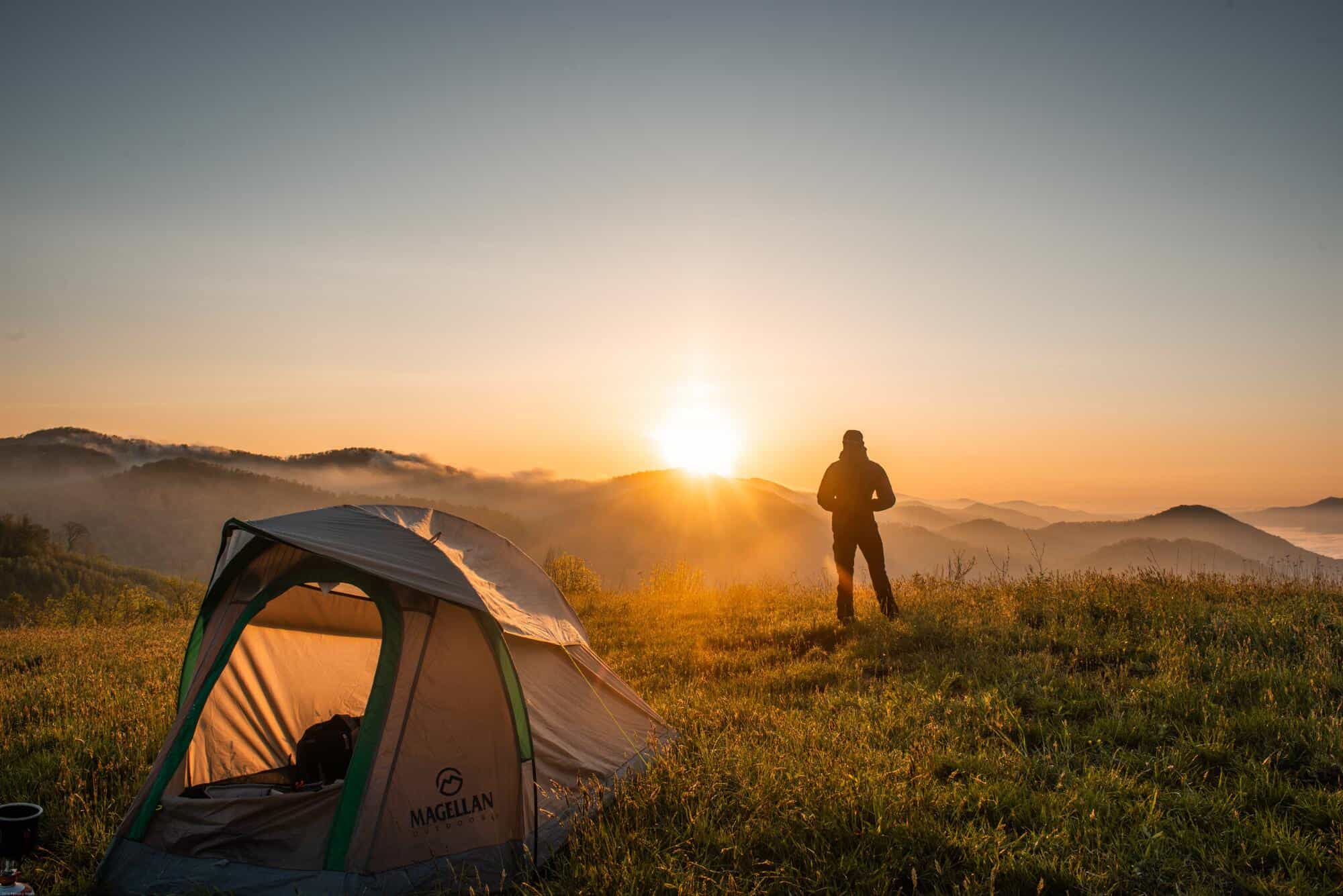Primitive camping, also known as backcountry camping, offers a unique opportunity to connect with nature in its most raw and untouched form. This guide will walk you through everything you need to know to embark on a primitive camping adventure.
Understanding Primitive Camping
Primitive camping involves camping without modern amenities, emphasizing self-reliance and minimal environmental impact. Unlike traditional campground camping or glamping, primitive camping requires you to be fully self-sufficient. This means you’ll need to bring everything you need for survival, including water, food, shelter, and waste management solutions.
Primitive camping often takes place in remote areas, far from established campgrounds and facilities. It offers a more immersive nature experience, allowing campers to truly disconnect from modern conveniences and rely on their own skills and preparedness. This type of camping requires careful planning, a good understanding of outdoor skills, and a willingness to embrace the challenges of living simply in nature.
Essential Skills for Primitive Camping
Navigation
Mastering navigation skills is crucial for primitive camping. Learn to read maps and use a compass, as GPS devices may have limitations in remote areas. Understanding topographic maps, recognizing landmarks, and being able to orient yourself in the wilderness are vital skills.
Practice these skills in familiar areas before venturing into more remote locations. Remember, in primitive camping, you can’t rely on marked trails or signposts, so your ability to navigate accurately can be a matter of safety.
Shelter Building
While lightweight tents are common, knowing how to construct natural shelters can be invaluable. This skill is particularly important in bushcraft camping. Learn to build simple structures like lean-tos, debris huts, or snow caves depending on your environment.
Understanding how to select a good campsite, considering factors like wind direction, water drainage, and natural protection, is also crucial. These skills not only provide emergency shelter options but also deepen your connection with the natural environment.
Fire Making and Water Purification
Learning traditional fire-starting methods and water purification techniques are essential survival skills for primitive camping. Master various fire-starting techniques using natural materials, such as the bow drill method or flint and steel. For water purification, understand methods like boiling, chemical treatment, and filtration.
Know how to identify safe water sources and the risks associated with consuming untreated water. These skills ensure you can stay warm, cook food, and have safe drinking water in remote locations where modern conveniences are not available.
Safety and Emergency Preparedness
Develop a thorough emergency plan and acquire essential first aid knowledge. Carry appropriate communication devices for remote areas. This includes learning how to handle common outdoor injuries, understanding the symptoms of conditions like hypothermia or heat exhaustion, and knowing how to signal for help if needed.
Consider carrying a satellite communicator or personal locator beacon for emergencies in areas without cell service. Always inform someone of your planned route and expected return date. Practice emergency scenarios and be prepared to adapt your plans if conditions become unsafe.
Environmental Stewardship
Practice Leave No Trace principles and be aware of wildlife safety measures. Proper waste management is crucial in preserving the natural environment. This includes packing out all trash, using biodegradable soap, and properly disposing of human waste. Learn how to store food safely to avoid attracting wildlife. Minimize your impact by camping on durable surfaces, respecting fire bans, and avoiding the introduction of non-native species. Remember, the goal is to leave the area as pristine as you found it, or even better.
Mental and Physical Challenges
Prepare yourself mentally for solitude and disconnection. Build your physical endurance gradually. Our backpacking tips for beginners can help you get started. Mental preparation is crucial for dealing with the isolation and potential discomfort of primitive camping. Practice mindfulness techniques and develop strategies for staying calm in challenging situations. Physically, start with shorter trips and gradually increase difficulty. Regular hiking and strength training can help prepare your body for the demands of carrying a heavy pack and navigating rough terrain.
Legal and Ethical Considerations
Understand land use regulations and practice cultural sensitivity, especially when camping near indigenous lands. Research the specific rules for the areas you plan to visit, including permit requirements, fire regulations, and camping restrictions. Be aware of private property boundaries and respect them.
When camping near indigenous lands, educate yourself about local cultures and avoid disturbing sacred sites. Always follow local guidelines and regulations to ensure your camping practices are both legal and respectful.
Benefits of Primitive Camping
Primitive camping offers unparalleled opportunities to connect with nature, foster personal growth, and reduce stress. Learning how to stay warm while camping can greatly enhance your comfort and enjoyment. The challenges of primitive camping can build self-reliance, problem-solving skills, and confidence. It provides a chance to disconnect from technology and reconnect with the natural world, which can have significant mental health benefits.
The physical demands of primitive camping can improve fitness and overall health. Moreover, the simplicity of primitive camping often leads to a greater appreciation for modern conveniences and a more minimalist approach to life.
By embracing primitive camping responsibly, you can experience nature in its purest form while developing valuable outdoor skills. Remember, proper preparation and environmental respect are key to a successful primitive camping adventure.

Leave a Reply